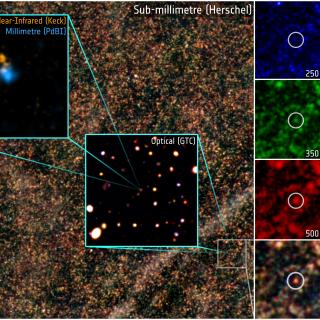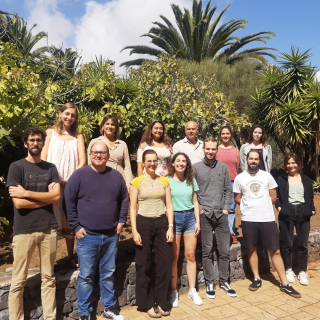Bibcode
Pei, L.; Fausnaugh, M. M.; Barth, A. J.; Peterson, B. M.; Bentz, M. C.; De Rosa, G.; Denney, K. D.; Goad, M. R.; Kochanek, C. S.; Korista, K. T.; Kriss, G. A.; Pogge, R. W.; Bennert, V. N.; Brotherton, M.; Clubb, K. I.; Dalla Bontà, E.; Filippenko, A. V.; Greene, J. E.; Grier, C. J.; Vestergaard, M.; Zheng, W.; Adams, Scott M.; Beatty, Thomas G.; Bigley, A.; Brown, Jacob E.; Brown, Jonathan S.; Canalizo, G.; Comerford, J. M.; Coker, Carl T.; Corsini, E. M.; Croft, S.; Croxall, K. V.; Deason, A. J.; Eracleous, Michael; Fox, O. D.; Gates, E. L.; Henderson, C. B.; Holmbeck, E.; Holoien, T. W.-S.; Jensen, J. J.; Johnson, C. A.; Kelly, P. L.; Kim, S.; King, A.; Lau, M. W.; Li, Miao; Lochhaas, Cassandra; Ma, Zhiyuan; Manne-Nicholas, E. R.; Mauerhan, J. C.; Malkan, M. A.; McGurk, R.; Morelli, L.; Mosquera, Ana; Mudd, Dale; Muller Sanchez, F.; Nguyen, M. L.; Ochner, P.; Ou-Yang, B.; Pancoast, A.; Penny, Matthew T.; Pizzella, A.; Poleski, Radosław; Runnoe, Jessie; Scott, B.; Schimoia, Jaderson S.; Shappee, B. J.; Shivvers, I.; Simonian, Gregory V.; Siviero, A.; Somers, Garrett; Stevens, Daniel J.; Strauss, M. A.; Tayar, Jamie; Tejos, N.; Treu, T.; Van Saders, J.; Vican, L.; Villanueva, S., Jr.; Yuk, H.; Zakamska, N. L.; Zhu, W.; Anderson, M. D.; Arévalo, P.; Bazhaw, C.; Bisogni, S.; Borman, G. A.; Bottorff, M. C.; Brandt, W. N.; Breeveld, A. A.; Cackett, E. M.; Carini, M. T.; Crenshaw, D. M.; De Lorenzo-Cáceres, A.; Dietrich, M.; Edelson, R.; Efimova, N. V.; Ely, J.; Evans, P. A.; Ferland, G. J. et al.
Bibliographical reference
The Astrophysical Journal, Volume 837, Issue 2, article id. 131, 21 pp. (2017).
Advertised on:
3
2017
Journal
Citations
130
Refereed citations
123
Description
We present the results of an optical spectroscopic monitoring program
targeting NGC 5548 as part of a larger multiwavelength reverberation
mapping campaign. The campaign spanned 6 months and achieved an almost
daily cadence with observations from five ground-based telescopes. The
Hβ and He ii λ4686 broad emission-line light curves lag that
of the 5100 Å optical continuum by
{4.17}-0.36+0.36 {days} and
{0.79}-0.34+0.35 {days}, respectively. The Hβ
lag relative to the 1158 Å ultraviolet continuum light curve
measured by the Hubble Space Telescope is ∼50% longer than that
measured against the optical continuum, and the lag difference is
consistent with the observed lag between the optical and ultraviolet
continua. This suggests that the characteristic radius of the broad-line
region is ∼50% larger than the value inferred from optical data
alone. We also measured velocity-resolved emission-line lags for Hβ
and found a complex velocity-lag structure with shorter lags in the line
wings, indicative of a broad-line region dominated by Keplerian motion.
The responses of both the Hβ and He ii emission lines to the
driving continuum changed significantly halfway through the campaign, a
phenomenon also observed for C iv, Lyα, He ii(+O iii]), and Si
iv(+O iv]) during the same monitoring period. Finally, given the optical
luminosity of NGC 5548 during our campaign, the measured Hβ lag is
a factor of five shorter than the expected value implied by the R
BLR–L AGN relation based on the past
behavior of NGC 5548.
Related projects

Formation and Evolution of Galaxies: Observations in Infrared and other Wavelengths
This IAC research group carries out several extragalactic projects in different spectral ranges, using space as well as ground-based telescopes, to study the cosmological evolution of galaxies and the origin of nuclear activity in active galaxies. The group is a member of the international consortium which built the SPIRE instrument for the
Ismael
Pérez Fournon

Traces of Galaxy Formation: Stellar populations, Dynamics and Morphology
We are a large, diverse, and very active research group aiming to provide a comprehensive picture for the formation of galaxies in the Universe. Rooted in detailed stellar population analysis, we are constantly exploring and developing new tools and ideas to understand how galaxies came to be what we now observe.
Anna
Ferré Mateu